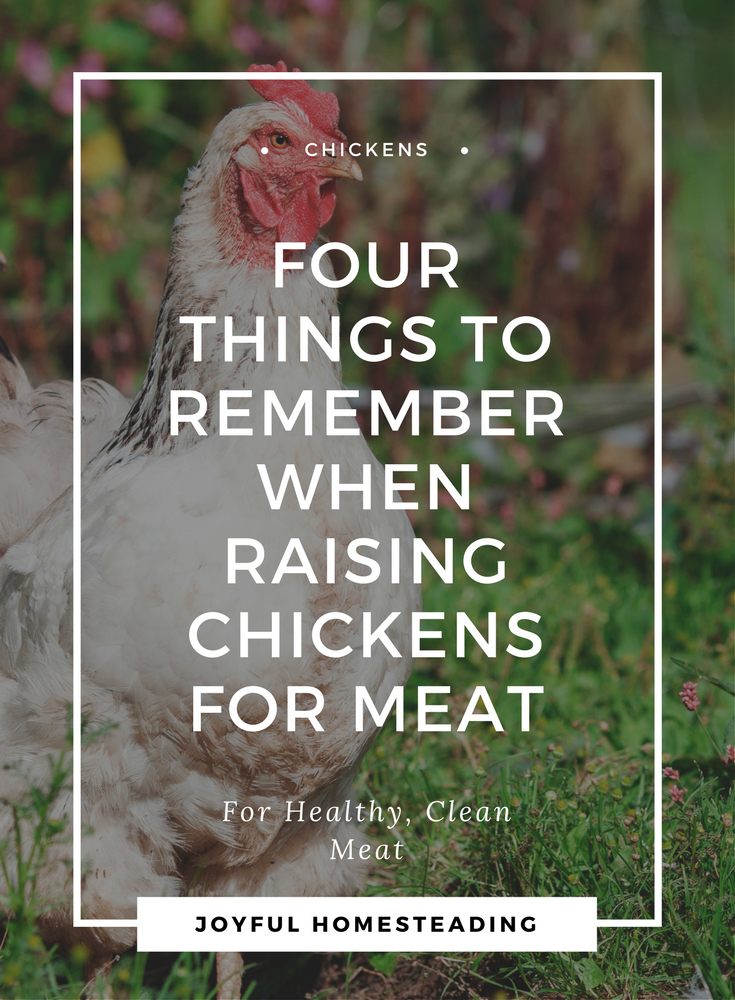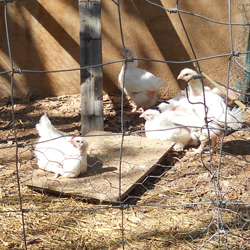Raising Chickens for Meat
Raising chickens for meat is not only a great, low cost way to have meat on your table, but is also a far healthier way of eating. When you raise your own chickens, you have control over what goes into your chickens (and ultimately what goes into you) and how your chickens are processed.

What I Learned From
Raising Chickens for Meat
This past summer a friend and I raised 50 broilers and then butchered them. Nothing the grocery store offers can compare with the taste of your own fresh chicken meat.
And butchering 50 chickens at one time wasn't nearly as intimidating as I thought it would be.
But before you order 50 or more chicks from a hatchery, keep these points in mind:

Raise Broilers
Although there are some dual purpose breeds out there that are supposed to be good layers and good for meat, such as Rhode Island Reds, you are really better off ordering chickens that are bred specifically for producing more meat.
The Cornish Rock breed is a good breed that has a large breast bone and is a calm chicken all around.
Raise Them in Cool Weather
Broilers tend to be hot birds that can generate a lot of heat on their own, so it's better to raise broilers in the cooler seasons, such as fall, winter and spring.
We made the mistake of raising broilers during the hot months this past summer. The temps reached over 100 degrees every day from June through the end of August, and we lost birds to the heat before we were able to butcher them.
Consider Feeding Your Broilers
Sprouted Wheat
If you have a sprouter, consider feeding your broilers sprouted wheat and other sprouted grains. Sprouts are packed with nutrition, and your chickens will have more meat and far less fat if they are given a diet of sprouted grains in place of, or in addition to, their grower ration.
Make Your Chickens Soil Builders
Another benefit of raising chickens for meat is your chickens can be soil builders as well as meat builders. If you plan on keeping your broilers in an enclosed pen, use straw for bedding and add more straw daily.
Your chickens will scratch around in the straw, trample it underfoot, add manure and splash water on the straw on an hourly basis. Keep adding new straw daily, and at the end of ten weeks, you will have a nice, raised garden bed for your next organic garden.







New! Comments
Have your say about what you just read! Leave me a comment in the box below.